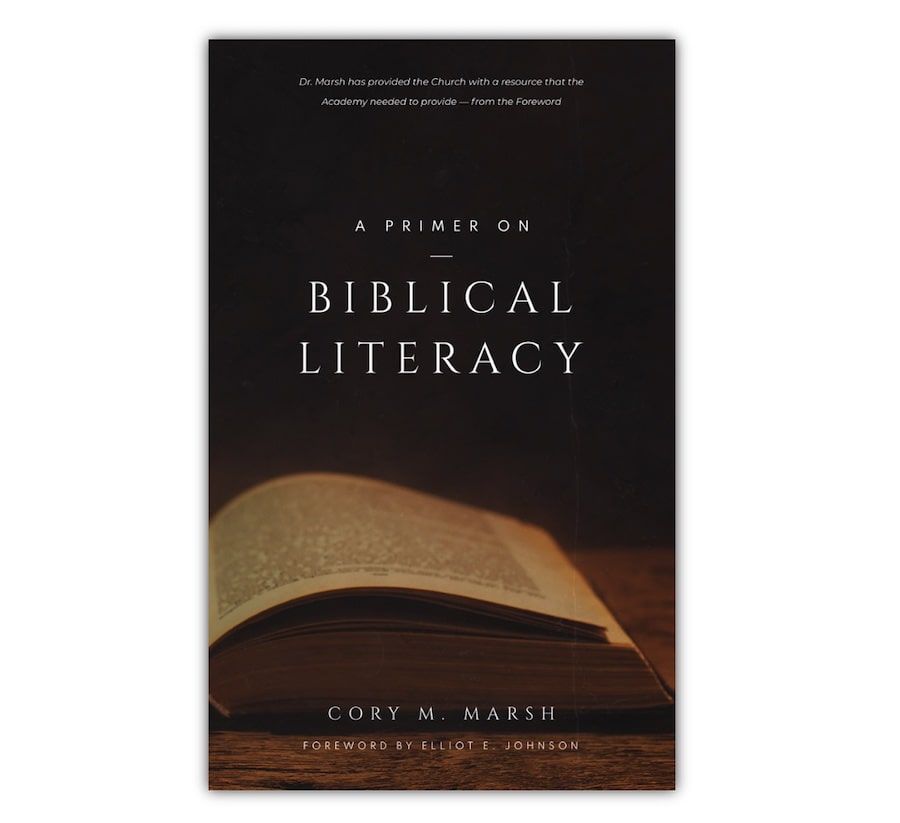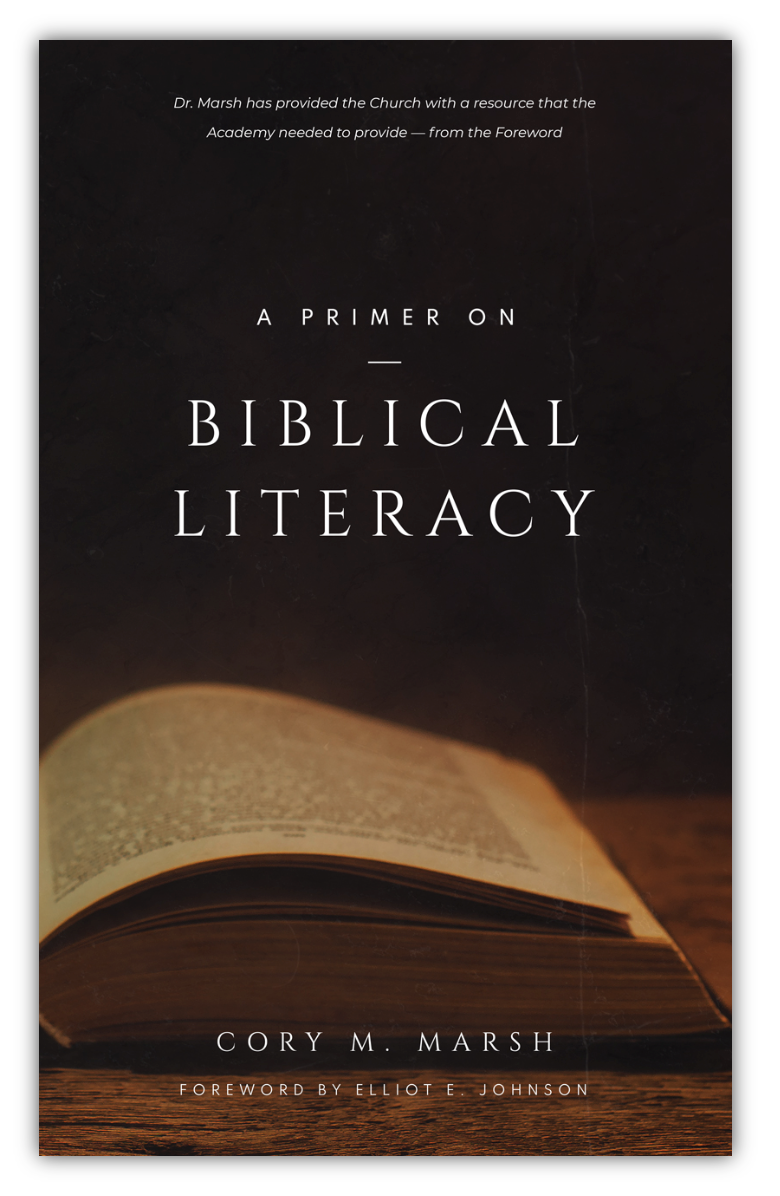A Primer on Biblical Literacy
Biblical literacy is an awareness of the diverse composition of the 66 books and a knowledge of the central themes and events found in the Bible.

A Primer on Biblical Literacy is a 130 page book written by Cory M. Marsh and published by SCS Press in 2022. Marsh received three master's degrees from Southern California Seminary and a PhD in Biblical Theology from Midwestern Baptist Theological Seminary. He serves as Professor of New Testament at Southern California Seminary and also preaches at Revolve Bible Church.
1. Purpose of A Primer on Biblical Literacy
A Primer on Biblical Literacy addresses three questions:
- Why Christians should become biblically literate? (Chapter 1)
- What is biblical literacy? (Chapter 2)
- How can Christians achieve a level of biblical literacy? (Chapter 3)
2. Content of A Primer on Biblical Literacy
In the Introduction, the author lays the foundation that the Bible is God's special revelation, and because it is authoritative for theology and life, it should be understood. While the topic of hermeneutics is addressed later in the book, biblical literacy is introduced as something broader and bigger.
Chapter one makes the observation that churches today either assume biblical literacy or designate it for seminary. Since the beginning of human history, Satan has attacked the Bible (Gen 3; Matt 4:1–11). Some of the worst tragedies seen in modern church cults are due to "Bible-heisters" who twist and misuse the word of God. Another danger is to fail to recognize the Bible as inspired, inerrant, and authoritative. A church that is biblically literate will protect itself from these dangers.
In chapter two, the author highlights that while many Christians believe the Bible is God's word, they have little knowledge of the contents inside Scripture. Biblical literacy is both an awareness and a proficiency in the Bible that is achievable for every Christian. There is awareness that the Bible is a collection of many books of varying genres, and there is knowledge of the central themes, events, and unfolding of the story of God found therein. There are several prerequisites for biblical literacy.
- Genuine conversion through faith in Jesus Christ (1 Cor 2:12–16)
- Prayerful attitude (Ps 119:27)
- Humility (Jas 1:19)
- Willingness to obey (Jas 1:22)
- Diligence (2 Tim 2:15)
Marsh reassures readers that we can gain biblical literacy, that is an awareness and proficiency in the Bible, without any expertise in the original biblical languages (Hebrew, Aramaic, and Koine Greek). However, there is immense value in appreciating that Scripture was originally written in these ancient languages, and the study of these languages will enhance our technical expertise in Bible interpretation.
Chapter three, the longest of the three chapters, is a concise summary of hermeneutics. Hermeneutics are the interpretive methods (science and art of interpreting Scripture) that help us achieve biblical literacy. Marsh reviews several important topics.
- Authorial intent
- Hermeneutical cycle and Hermeneutical Triads
- Progressive revelation
- Literal, grammatical-historical method
- Meaning vs. significance
In its conclusion, the author argues that to apply the significance of Sola Scriptura, the reader must understand the importance of gaining biblical literacy. Every Christian can and should develop an awareness and proficiency of the Bible through proper hermeneutics.
3. Commentary of A Primer on Biblical Literacy
A Primer on Biblical Literacy was a joy to read. Cory Marsh was successful in compiling a short book as an introduction to biblical literacy. The book is written for everyday Christians, but there is no lacking in Christian scholarship. The recommended lists of modern books are up to date and excellent to guide the reader to additional resources in his journey of biblical literacy.
This book is an excellent supplement to standard books on hermeneutics. The book will be useful for church leaders as they encourage their church to pursue greater familiarity with Holy Scripture.
My only quibble is the added length of space dedicated to discuss the modern examples of Bible "heisting" in chapter one. I would have reserved that space with a deeper discussion on the teachings found in Scripture that support the importance of biblical literacy (as defined by this book).
4. Comparison Analysis
I am not aware of another book that is as accessible and clear on the topic of biblical literacy. I would heartily recommend Robert Plummer's 40 Questions About Interpreting the Bible which Marsh cites several times in his book. Books I recommend that expound on chapter three include McCartney's Let the Reader Understand: A Guide to interpreting and Applying the Bible and Principles of Biblical Interpretation by Berkhof.
5. Final Thoughts on A Primer for Biblical Literacy
A Primer for Biblical Literacy is a concise, accessible book on the value, meaning, and process of biblical literacy. Everyday Christians will gain much, and pastors and Bible students will also benefit by supplementing their standard textbooks on hermeneutics with Marsh's book.

A Primer on Biblical Literacy
Written by Cory M. Marsh | SCS Press (2022)




